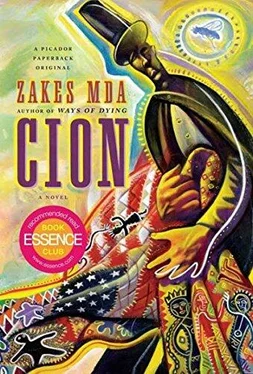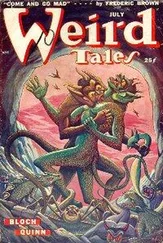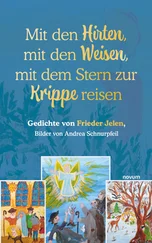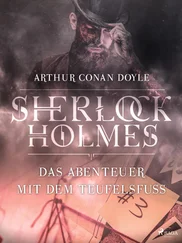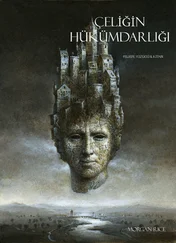“Why would Ruth do such a thing?”
“She hates anything beautiful.”
“But this is wonderful art. Only the Taliban destroys works of art.”
She almost smiles. Her face becomes gentler.
“She is the Taliban in the house,” she says.
Obed laughs. “That’s a good one,” he says, and then in rap style: “Mama is da Taliban in da house!”
That accounts for the drawings in the ghost tree. She was not throwing them away. She was hiding them from Ruth. That’s what she has to do every time Ruth is spring-cleaning. And when Ruth is spring-cleaning she leaves no room unscathed. She cleans mine too, although I am always there, pleading with her to leave it alone since I do clean it on a regular basis. So every time Ruth is in her cleaning mood Orpah must hide her artworks. But sometimes Ruth decides on the spur of the moment to storm through the house cleaning everything in sight because her nostrils have detected an odor that no one else’s nostrils can. Then of course Orpah is caught off guard and has no opportunity to hide her work. Ruth pounces on it and destroys it. Orpah cries because she says she will never be able to repeat those particular designs.
“She should be encouraging this work instead of destroying it,” I say.
I have been careful not to tread on Ruth’s toes. But I think I must take this matter up at the dinner table. Taking advantage of the vulnerability that I have seen in Orpah, and hoping that she now sees me as an ally and not the enemy she must have taken me for, I invite her to join the family for dinner. I think it is important that the matter is discussed openly in her presence. The irony is not lost on me that I, a visitor, am inviting her to dinner in her own home. She turns the invitation down because she will not sit at the same table with her mother until she learns to respect both her art and her privacy.
I am beginning to understand Orpah. I remember how my own father used to despise my artistic attempts as a little boy, and what that used to do to me. He was a blacksmith and used to create metal figurines from dreams. He mocked my creations because they did not come from dreams. He was not impressed even when my painting won a prize and was made into a calendar. Perhaps now I would have been a successful artist if I had not received such early discouragement.
At dinner time I share this memory with the table. But no one responds to it. Mahlon just keeps on smiling and chomping on the deep-fried dandelions. Obed looks at me with a don’t-you-start-now expression and pays close attention to his grits and pork. Ruth looks at me inquiringly for a while, and then urges me to try the dandelions since she can’t wait to hear what I think of them. I try them and like them. I say so. I commend her for her culinary skills, but still I am not prepared to let the matter of Orpah’s works rest.
“Orpah was crying this afternoon,” I say.
“She’s got issues, that’s why,” says Ruth.
“It’s that darn mark of the Irishman on her,” says Obed. “It’s giving her the temper of our Irish ancestor, the first Quigley.”
“You shut up about that, boy,” says Ruth. “You don’t know nothing about it. Orpah just got issues, that’s all.”
“Her main issue is that you destroy her artwork,” I say.
“You think it’s normal for a woman of forty-plus to sit in her room all day scribbling meaningless children’s drawings?”
“I saw some of her work,” I say. “I think it is charming. It would make wonderful quilts.”
I shouldn’t have placed Orpah’s work and quilts in the same sentence. There is a flash of anger in Ruth’s eyes. But soon she controls herself, I suspect because she figures she is dealing with an ignoramus here. Her face now displays the patience of a saint as she explains to me that in the same way that her mother taught her how to quilt, she took the trouble of teaching Orpah as well. But she gave up in disgust when Orpah haphazardly appliquéd bits of cloth on top of the revered ancestral patterns and embroidered what she claimed were sycamores on some of the pieces, and even went so far as to attach beads and sew collages of found objects on the quilts. The whole thing was hideous to behold and disrespectful of the wonderful culture of quiltmaking passed from one generation to the next. Ruth remembers an instance when the “girl” actually sewed feedsack batting at the back of the quilt, on the outside ! Every fool knows that batting belongs inside a quilt in order to make it into a comforter. That was the day she vowed that Orpah would never touch her sewing machine again until she learned some manners. That is why now she resorts to drawing the patterns on paper and colors them with crayons like a little child. And that is why Ruth will continue to destroy them. If it were not for these drawings that have captured her soul like the demons that Jesus expelled from a certain guy named Legion into the very swine we are eating today, the “girl” would have made something of her life. But of course there is the sitar as well, a new demon that has taken over her life and sunk her deeper into a world of her own.
So, the problem did not really begin with the sitar as I was led to believe. It did not begin with the Gothic stories and Native American tales either. The stories don’t seem to be much of a factor because ever since Ruth mentioned them as “ghost stories” once I haven’t heard anyone talk of them again. The fact is it all started with the drawings and their destruction!
“Them newfangled designs are not our tradition,” says Ruth. “We’re people of tradition. Our patterns have come down from our great-great-grandmothers, and ain’t no little squirt’s gonna change that.”
Yes, that darn sitar, Obed adds with a mischievous twinkle in his eye, it’s a sacrilege to play bluegrass — such wonderful hillbilly music — with a strange instrument of “them Indians.” Especially that these are not “our” Indians but those that hail from India. I can see that the scoundrel is just trying to get on the good side of Ruth. Orpah’s sitar and its origins have never bothered him before.
Of course Ruth is too smart to buy into this false alliance. She slaps his shoulder gently and says: “You ain’t no better yourself. You ain’t done nothing with your life.”
“You screw up everything I try to do with my life, Mama. Like my hand trembling business.”
“Look at Nathan,” says Ruth. “He’s got a real job; not some hand trembling scam.”
“It ain’t no scam, Mama. It’s tradition. You want Orpah to do tradition but you don’t want me to do no tradition.”
“It ain’t the same thing, boy. Now she draws people too. Like she’s God or something. My folks never did them people on their quilts. Only the Monkey Wrench and the Drunkard’s Path and meaningful things like that.”
She vows she will continue to destroy Orpah’s work even though it hurts her no end to do so. That’s what tough love is all about. She will do it for the next hundred years if it comes to that. She has the stamina for it. This has been going on for years, from Orpah’s high school years or even earlier. And we better believe that she will go on until the “girl” learns to behave like the adult she should have been by now. And when she says this she looks at Obed and then at me, as if challenging us to dare oppose her. I notice that she does not challenge Mahlon.
This is not an empty threat. Ruth is relentless in the destruction of the designs whenever and wherever she finds them, burying Orpah deeper into solitude. She destroys them with religious fervor because she believes they are the work of the demon that inhabits her daughter, making her sluggish and ambitionless.
“The Monster with the White Eyes,” says Mahlon with a distant look in his eyes. Everyone looks at him expectantly but he does not proceed. He just looks at each one of us and smiles.
Читать дальше
